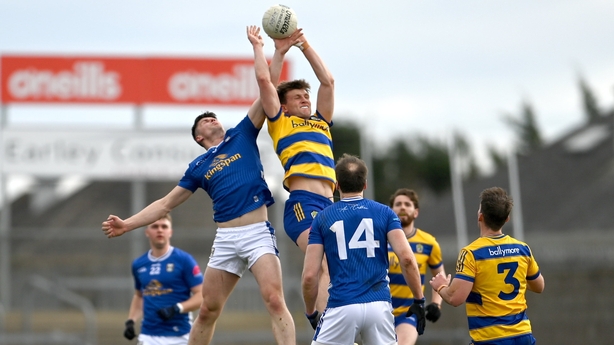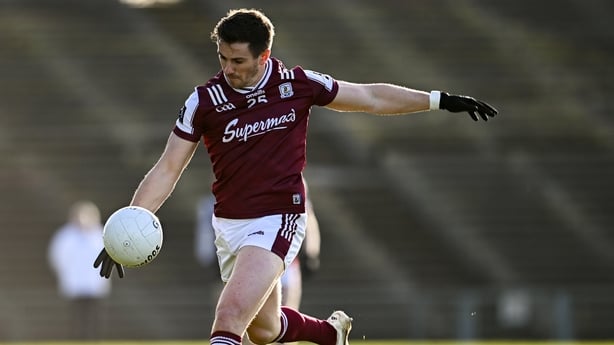If nothing else, we are a contrary bunch.
Add in a bit of heartfelt passion and personal ownership of the matter at hand and you have the GAA proletariat. Full of lifelong knowledge of the game, take them for fools or ignore their opinions at your peril.
The game was dead, dying or needing resuscitation, whatever your viewpoint, it wasn't pretty.
Along came Jarlath Burns’ knights of Football Radical Changers or the FRC as we would know them. To be fair, they were up to the challenge. Even from the outside looking in, it’s clear this was nothing less than a herculean task.
And boy they were brave. No messing about the edges here. Wholesale changes were both considered and enacted. Nothing would be the same again.
So, this winter into spring, we have had to deal with the complete ripping up of the game we all loved…well I say loved, but really loved to give out about is probably more accurate.
The wholesale rule changes were challenging enough to grasp but the minutiae – the old amendment of rule 6.2.3 etc., that nearly broke us.
Referees and players alike started to struggle at times. By and large though the games have been good. Frantic, crazy, confusing, yes, but crucially, entertaining.
Yes, the managers were displeased. Of course they would be. In our current era where we obsess and analyse managers nearly more so than players, they are the people under most pressure. They don’t - and shouldn’t - care about 'entertainment’ value.
The rules removed so many of the managers usual levers of control and game management. In a game where a 10-point lead means nothing, the architects of control were now the observers of chaos.
Ironically enough this has all been caused by one of their own, Jim Gavin, removing all semblance of control from the game.

If Jim was still a manager, I reckon he’d be cracking up with the new rules. Jarlath Burns pulled a flier by challenging him and his FRC team to make football the "most entertaining field game in the world".
All of Gavin’s legendary attention to detail turned from focusing on controlling his team to making it entertaining.
In one way you could view the approach of the FRC as largely dismantling the very framework that made Gavin’s Dublin team so unbeatable. Retention of possession, high percentage plays, avoid contact, minimise turnovers – all gone.
So what now? What are the new decisions facing managers in terms of how they set up their teams?
Kickouts wise, while mid-range possession kicks are still possible, their risk factor has increased significantly and so long kickouts to a contested area are by and large essentially where we are at.

Defensively, we have seen teams employ two distinct approaches. There is a pressure game, where there is an attempt to always be hassling the man on the ball or there is the zonal game where defenders fall off, fill the main shooting zone - essentially the 12-man version of the blanket defence but, rather handily, with a lovely big arc on the pitch to line up at.
I would imagine all teams will need to develop the ability to do both as depending on game situation, opponent, or conditions.
Attacking has been the area of most interest to me.
Last weekend we saw a definite signalling of intent from two of the game’s leading lights in Kerry and Dublin.
When the FRC first were proposing the 3-man-up rule, I certainly was envisioning, as they did, a significant increase in kick passing based attacks. The thought of teams moving the ball up the pitch as fast as possible (i.e. kick passing) to their three most dangerous attackers up there in a world of space, seemed not just Gaelic footballing nirvana, but the obvious outcome of the rule change.
Yet, the initial rounds of the national league saw a distinct lack of this approach. Most teams were making their attacking hay through blitzkrieg attacks either off kickouts or turnovers; the ball moved at pace through the hands, linking with the players up the pitch as the play moved up there rather than hoofing it up and letting them get on with it.
The ‘solo and go’ rule - that rarest of GAA things, a seemingly universally liked change - added into this ball-in-hand attacking approach. That was until Dublin and Kerry put their boots to very different use last week. Suddenly they were for kicking rather than running. And it looked good. Very good.
Heading into championship I have no doubt that many aspects of teams planned approach for summer remain either at an early state of tune or under wraps.

You don’t build privacy screens around training pitches if you are going to show all the world your best ideas in the early season league games.
From an attacking point of view, there are so many things to do damage with – kick pass attacks, fast in-hand counters, target men for inside marks, long range shooters – it is little wonder that the players who are thriving most are the star forwards.
Smothered for years, they are now seeing green grass they haven’t seen since their U14 days.
After the changes, confusion and endless discussion, the rules of footballing engagement 2025 have now been settled. Let battle commence…ATTACK!
Watch Allianz League Sunday from 10.20pm on RTÉ2 and RTÉ Player. Follow a live blog on all matches on rte.ie/sport and the RTÉ News app. Listen to updates around the country on Sunday Sport on RTÉ Radio 1


